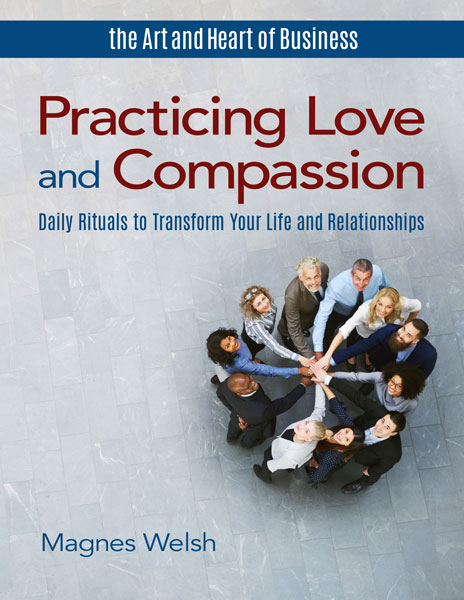This is the third in a 6-part series on the principles of heart-based leadership. If you missed them, don’t forget to check out the first and second posts.
We all know the voice of our own internal judge. It’s the voice that always seems able to find fault — either with others or ourselves. Our tendency to judge is really about control. If we can identify what’s wrong at least we don’t have to stay in that uncomfortable space of allowing life — a business situation, a relationship, illness, the state of the world — to be just as it is.
Of course, this type of judgment is different than wise discernment — the ability to make well-informed decisions that produce desired outcomes — which is particularly important in business. When I talk about “suspending judgment,” as a principle of heart-based leadership, I mean refraining from the habit, which stems from fear, of finding fault and assigning blame. When we are caught in judgment, we cannot lead with heart.

Since this tendency is so hard-wired in us — we often don’t even realize we’re doing it — it is a challenge to practice non-judgment. The goal is to be able to identify fear-based judging when it’s happening, pause, and consider setting aside the need to assign blame and instead open to alternatives.
Signs of fear-based judgment:
- Black or white, all or nothing thinking. The judging mind loves extremes. “He completely messed up. We’ll never meet that deadline now.” “She is the worst. She never stops talking and always cuts people off.” Do you notice the superlatives? These can be signs of judgment.
- Feeling shut down and closed off. Judgment separates us from others. Often you might feel a clench in your chest, a knot in your stomach or a hardening sensation in the heart.
- Feeling locked in to an opinion or statement. Have you ever been in the middle of an argument and realized you were wrong? When we identify with our judgments we become very attached to them and this leads to rigidity.
- “Shoulds” – She should have sent me the document earlier, then we would have been better prepared for the meeting. “Should” is a sign of arguing with reality. It’s OK to not be pleased with how things are or to work for change, but it first requires acceptance of the way things are rather than insistence that they should be different.
If you notice any of these thinking patterns, pause and (without judging yourself!) ask whether, if only for a moment, you can let the situation or person be as it is without desiring it to be otherwise. Can you open your heart to the things about it that you don’t like (your coworker’s talkativeness; your client being late to your meeting; the sales team not making its quarterly target)? Seeing the judging and challenging it with open-heartedness, if only briefly, helps us get in the habit of suspending judgment and frees us to interact, make decisions, and lead from a place of love rather than fear.





